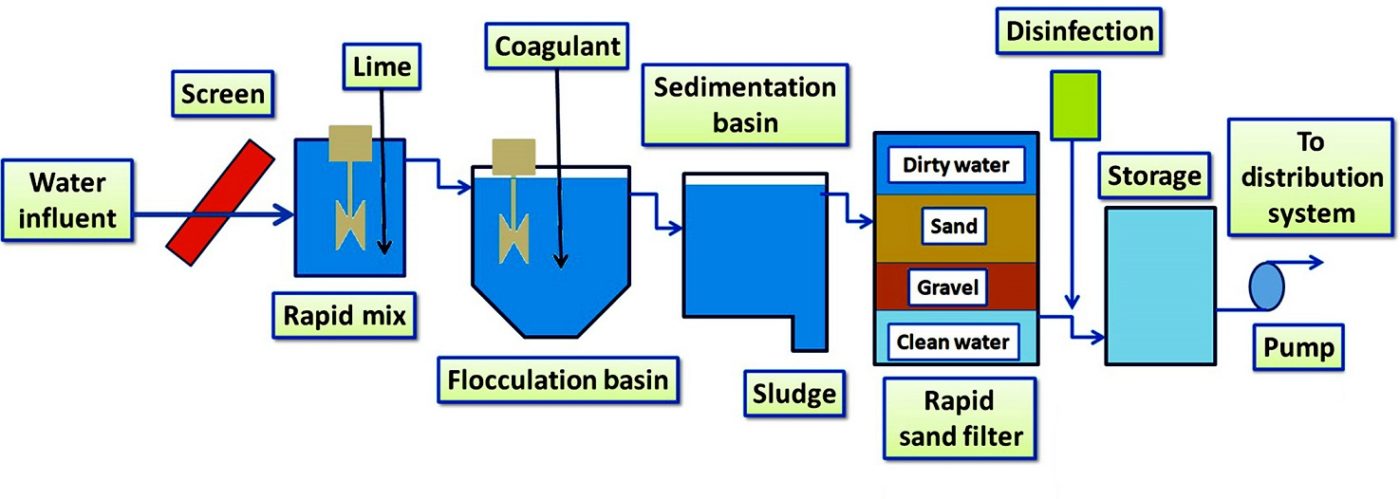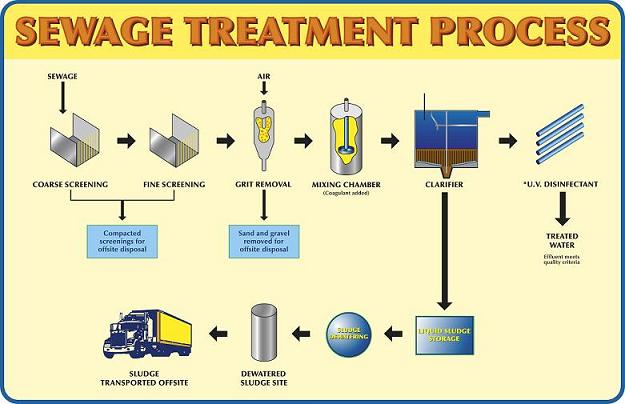The Ultimate Guide To Hard Water Treatment Systems
Table of ContentsFascination About Hard Water Treatment SystemsWhat Does Hard Water Treatment Systems Mean?The 30-Second Trick For Hard Water Treatment SystemsOur Hard Water Treatment Systems DiariesThe Best Guide To Hard Water Treatment SystemsOur Hard Water Treatment Systems Ideas
In this blog site, we will cover the 4 kinds of water treatment plants, how they work and the lots of industrial applications of each type. Wastewater Therapy Plant (WWTP) Wastewater is the water that originates from water made use of in residential, agricultural, industrial as well as clinical or transport tasks.on the various other hand, originates from manufacturing, industrial and business activities brought and has a totally various make-up than sewer water. Exactly how does it work? The first action in this water treatment plant is that the wastewater drains to the plant with the assistance of gravity through the primary sewer system.
In this stage, the water moves through the crushed rock chamber to eliminate any type of grit. The gravel is then taken care of at the dump. The water after that transfers to bench screens which remove huge objects. These are program screens. Next off, the fine screens eliminate smaller sized objects such as undigested foods, or suits, and so on.
The 8-Minute Rule for Hard Water Treatment Systems



This makes it possible for the splitting up of water from the semi-solid sludge, whereas the continuing to be sludge undertakes the mechanical procedure again for dewatering, that is getting as much water from the sludge as possible. The sludge then left behind after the digestion as well as dewatering process is total, is lastly disposed of in the dump.
Hard Water Treatment Systems for Beginners
The last action in wastewater treatment is inspection. hard water treatment systems. This inspection entails inspecting the contamination level of the water treated and also making certain it abides with the highest possible standards in order to be released or recycled for domestic or commercial purposes. Applications: Most petroleum refineries or petrochemical along with chemical markets generate a big amount of wastewater and also need on-site wastewater treatment plants.
The wastewater here moves with displays as well as into negotiation basins that can get debris in huge quantities. It acts as a pre-treatment as mentioned above as it occurs before 3 more aggressive phases- main, second as well as tertiary treatment. Key Therapy During this stage, the wastewater moves right into the clarifiers.
It is the layout of these tanks that lead to working out, that is, the natural strong issue accumulates at the base of the storage tank while the lighter matter drifts to the top coming to be much easier for removal. The natural issue that works out near this the bottom is referred to as a key sludge blanket.
The 2-Minute Rule for Hard Water Treatment Systems
Second Treatment This therapy phase includes cardiovascular aeration. Aeration basins have aerators, these have a system of pipelines or tubes connected to them. They are constructed from ceramic or rubber membrane layers that have tiny openings in them for air to travel through. When this air moves through the aerators, the small holes present, turn them right into bubbles and also they obtain combined with the water column.
This RAS goes back into the primary information container and also the germs in it aids in damaging down any type of raw material in the sewage. When RAS has totally experienced both the primary as well as secondary information discover this basins constantly, i. e a number of times, it is developed into waste-activated sludge (WAS). The WAS after that does not return to the primary clarification container however instead relocates to the protected storage tanks, also referred to as cardio sludge digesters.
Lastly, the staying sludge transfer to the dewatering facility that contains dewatering containers where the plant utilizes belt presses to squeeze any kind of continuing to be water out of the sludge (hard water treatment systems). Tertiary Treatment Tertiary therapy follows the procedure of both primary and also additional processes but likewise in addition includes mechanical and also photochemical processes.
Some Known Factual Statements About Hard Water Treatment Systems
Right here the focus is provided to physical strategies such as testing, sedimentation, purification, information etc. The objective of this is to eliminate as much solid physical issues as possible prior to sending the effluent for further therapy. This stage entails the removal of strong waste and raw material. Here chemicals are included to damage down any solid and also chemical waste.
There are two kinds of materials- one is an anion one while the various other is a cation one. hard water treatment systems. These former resins release hydroxyl ions which are negatively charged while the cation resins release hydrogen ions that are positively billed. The cation-exchange materials bring about softening of water, the anion-exchange lead to the removal of nitrate from wastewater as well as the combination of both the anion and cation exchange eliminates virtually every ionic contaminant existing in the feed water with a procedure called deionization.
Applications: Demineralization leads to the full elimination of minerals from the water and is generally utilized in sectors that need water with high levels of purity, as an example- make-up or feed water in high-pressure central heating boilers, the food and also beverage sector, and procedure streams utilized in the manufacturing of electronic devices. They are also utilized in markets for the generation of vapor, power as well as air conditioning.
Not known Facts About Hard Water Treatment Systems
Reverse Osmosis (RO) Water Therapy The concept of reverse osmosis (RO) functions on the filtering method that results in the elimination of a multitude of contaminants and also contaminations from wastewater by applying stress to it when it is on one side of a membrane. Just how does it work? This water therapy plant functions by utilizing a high-pressure pump that raises the pressure on the salt side of the RO as well as forces the water throughout the semipermeable RO membrane layer (which allows some atoms and also molecules to pass yet find this not others), leaving nearly 95%-99% of dissolved salts in the decline stream.